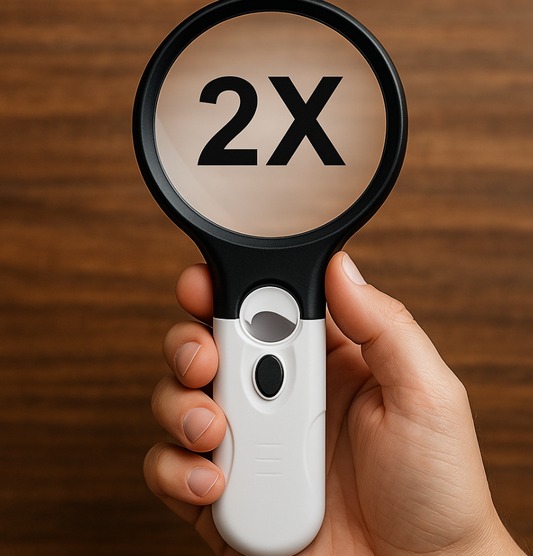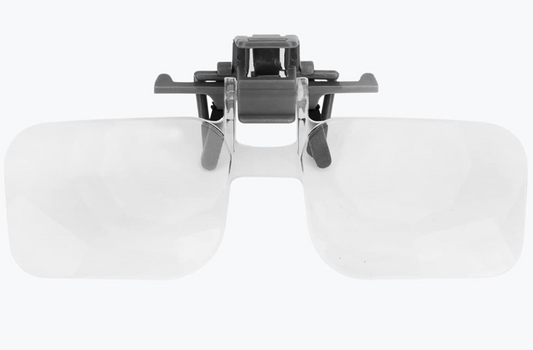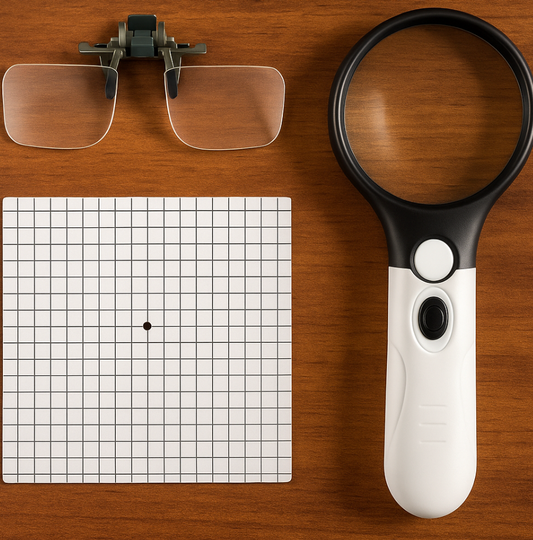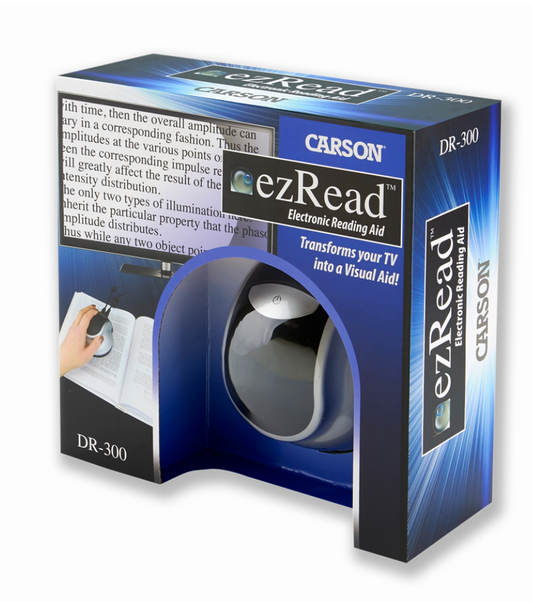Lutein, Zeaxanthin & Their Importance in Macular Degeneration
Share
Your eyes are among the most important organs in your body, allowing you to experience the world around you. But as you age, your vision can deteriorate due to various conditions, including macular degeneration, cataracts, and other age-related eye diseases.
Fortunately, certain nutrients, such as lutein and zeaxanthin, play a crucial role in protecting your vision and maintaining overall eye health. These powerful antioxidants are found in many foods and can be boosted with the right diet and supplements.
In this article, we will explore the benefits of lutein and zeaxanthin, how they help prevent macular degeneration, and how a Mediterranean diet and omega-3 supplements can further support eye health.
What Are Lutein and Zeaxanthin?
Lutein and zeaxanthin are carotenoids, which are natural pigments found in various fruits and vegetables. These antioxidants are specifically concentrated in the macula of the eye, the part responsible for central vision and detailed sight. Their primary role is to filter out harmful blue light and reduce oxidative stress, which can cause damage to the eye over time. Because the human body does not produce these nutrients on its own, they must be obtained through diet or supplementation.
How Lutein and Zeaxanthin Protect Your Vision
- Reducing the Risk of Macular Degeneration Age-related macular degeneration (AMD) is one of the leading causes of vision loss, particularly in older adults. Lutein and zeaxanthin act as natural sunblock for the eyes, absorbing harmful blue light from screens, artificial lighting, and the sun. Studies have shown that a diet rich in these carotenoids can lower the risk of AMD and slow its progression in individuals who already have it.
- Preventing Cataracts Cataracts occur when the lens of the eye becomes cloudy, leading to blurry vision and, in severe cases, blindness. Oxidative stress and prolonged exposure to UV light contribute to cataract formation. Because lutein and zeaxanthin are powerful antioxidants, they help protect the eye's lens from oxidative damage, reducing the likelihood of developing cataracts.
- Enhancing Visual Acuity and Contrast Sensitivity Regular intake of lutein and zeaxanthin has been linked to improved visual sharpness and contrast sensitivity. This means better ability to see in low-light conditions, which is particularly beneficial for activities like night driving.
The Role of a Mediterranean Diet in Eye Health
The Mediterranean diet, known for its emphasis on whole foods, fresh produce, and healthy fats, has been shown to offer numerous health benefits, including eye protection. Many Mediterranean diet staples are excellent sources of lutein and zeaxanthin, including:
- Leafy Greens: Spinach, kale, collard greens, and Swiss chard are among the richest sources of these carotenoids.
- Colorful Vegetables: Peppers, corn, and carrots contain significant amounts of lutein and zeaxanthin.
- Olive Oil: A key component of the Mediterranean diet, olive oil enhances the absorption of carotenoids.
- Eggs: The yolks are packed with lutein and zeaxanthin and are more easily absorbed by the body due to their fat content.
By following a Mediterranean diet, you not only support overall health but also supply your body with essential nutrients to maintain strong and healthy vision.
The Role of Omega-3 Fatty Acids in Eye Health
In addition to lutein and zeaxanthin, omega-3 fatty acids are another crucial component for maintaining good eye health. Found primarily in fatty fish and fish oil supplements, omega-3s help reduce inflammation and support the health of the retina. They are particularly beneficial in preventing and managing dry eye syndrome, a common condition that causes irritation, redness, and blurred vision. We recommend our clients choose PRN Omega DE3 for their fish oil supplement. As always, consult with your doctor before starting any new supplements!
Omega-3 Rich Foods to Include in Your Diet
- Fatty Fish: Salmon, mackerel, sardines, and trout are excellent sources of omega-3s.
- Nuts and Seeds: Flaxseeds, chia seeds, and walnuts provide plant-based omega-3s.
- Fish Oil Supplements: For those who don’t eat enough fish, high-quality fish oil supplements can help fill the gap.
Should You Take Supplements for Eye Health?
While a balanced diet is the best way to obtain lutein, zeaxanthin, and omega-3s, some individuals may benefit from supplements, particularly those who have difficulty consuming enough of these nutrients through food. Many vision-support supplements contain a combination of lutein, zeaxanthin, omega-3 fatty acids, and other beneficial vitamins like vitamin C, vitamin E, and zinc.
Final Thoughts
Protecting your eyesight should be a top priority, especially as you age. Lutein and zeaxanthin play a key role in reducing the risk of macular degeneration, preventing cataracts, and improving overall vision quality. Pairing these nutrients with a Mediterranean diet rich in fresh vegetables, olive oil, and fatty fish, along with omega-3 supplementation, can provide optimal eye health benefits. By making small but impactful dietary changes today, you can safeguard your vision for years to come.
If you’re concerned about your eye health or have a family history of macular degeneration, consider incorporating more lutein and zeaxanthin-rich foods into your diet and discussing supplementation options with your healthcare provider. Your eyes will thank you!



